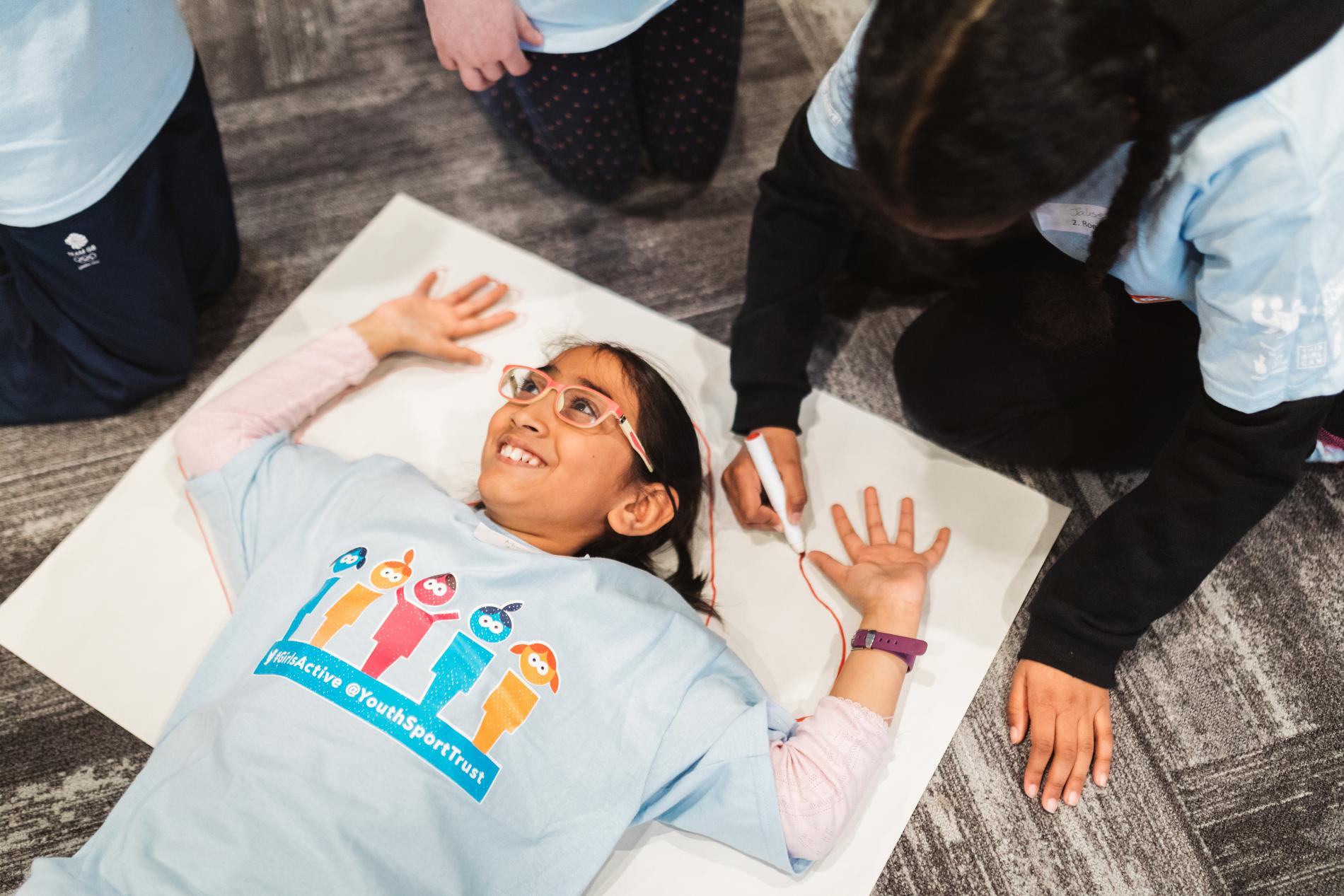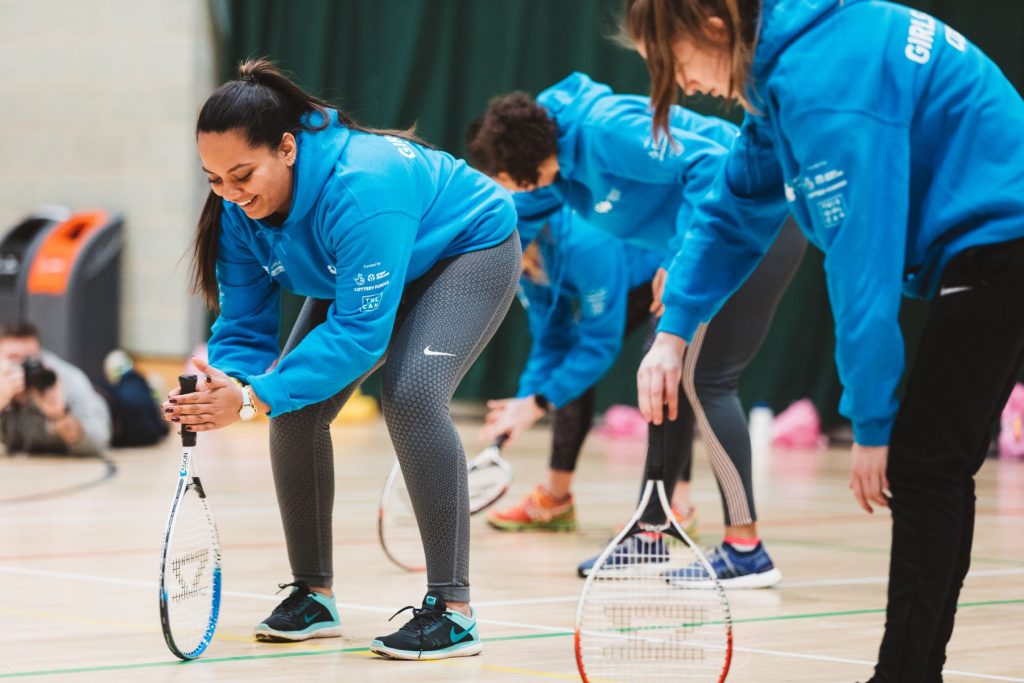How the Girls Active campaign is changing girls’ lives

Founded in 1995 in Leicestershire, the Youth Sport Trust works with thousands of schools across the UK in order to increase participation in sports and promote a healthy lifestyle for children and young people
Research conducted by the Youth Sport Trust has shown that, on average, girls are less likely to take part in sports or other physical activity than boys.
The statistics surrounding girls’ participation in sport concerned the charity, which led them to begin a two-year pilot and research project in 2012. Following this research project — which showed that girls lack the confidence and motivation to regularly take part in physical activity — the Girls Active programme was created in 2014.
Girls Active supports schools to understand what motivates girls to take part in physical activity. It enables teachers to work with girls — through consultation and leadership — to make the necessary changes to their physical education (PE), sport and physical activity provision. Developed by the Youth Sport Trust, and delivered in partnership with This Girl Can and Women in Sport, Girls Active is funded by Sport England National Lottery.
Wendy Taylor has been the development manager for the Girls Active programme since 2015. As a former PE teacher and a mum to young children, she has witnessed first hand the stark contrast in attitudes towards physical activity between boys and girls.
“Particularly at the time I was working in Grammar schools, I noticed that girls would participate in PE and contribute, but they wouldn’t necessarily see the value in participating — they didn’t seem to view physical activity as something that was important to them,” Wendy told the Sports Gazette.
“It stemmed from the fact that the girls weren’t participating in sports after school, or being active outside of school — possibly because they didn’t understand the relevance of being active to their lives.
“Obviously it is very different for different groups of girls — for these girls, being in quite an academic school where their parents had high expectations, they were very much being encouraged that their studies were more important, and they didn’t have time. Being active wasn’t as important as studying.”
A survey of over 26,000 secondary school students carried out by the Youth Sport Trust in 2016 found that only 67% of girls’ parents encouraged them to be active and take part in sport, compared to 76% for boys.
However, Wendy believes that the biggest issue facing girls is a lack of confidence in their abilities.
She explained: “PE is a very visual type of activity — you can see when somebody performs and you can see when someone does something well, or doesn’t do something as well. If a girl sees that they’re not very good at a sport, that becomes a barrier to them — they’re less likely to have the confidence to put themselves in that position.
“It’s crucial that we work with schools to help them think about how they can create an environment that builds up girls’ confidence.
“This can be as simple as not necessarily focusing on competitive sports, but rather on being physically active, having fun, enjoyment, and having your own personal goals, rather than a comparison between girls.”
When the Girls Active programme began in 2015, a focus was placed on working with girls in Key Stage Three (aged 11-14), as the Youth Sport Trust’s research showed that this is when there is a decrease in girls’ participation in sports.
Since then, however, the programme has encouraged some schools to continue to work with girls as old as 18, or as young as ten.
“We started to work with primary schools because our research suggests that the drop off in participation starts towards the end of primary school in Year 5 or 6,” Wendy said.
“The transition period between primary and secondary school is a critical time, so if schools can work in ways together to support girls, it will have a more positive impact on their experiences as they transition from primary to secondary school.
“One of the big things that we have been trying to help schools and teachers to understand is what it feels to be like an adolescent girl, and the challenges and experiences they have. I think helping teachers have that empathy and understanding of issues facing girls is really important.
“Another aim of the Girls Active programme is to start to put girls at the centre of making decisions and ensuring that we give them a voice as to what they like, what they don’t like, what stops them from participating, what would help improve their motivations, and then building up opportunities and activities based upon those motivations — that’s really important.”
In addition to their ongoing partnerships with schools, the Girls Active programme has also run a three-day residency camp at Loughborough University since 2015. The coaching camp is designed to give girls the opportunities to develop leadership and coaching skills, which Wendy hopes they can take back to their schools to pass on to more girls.

She said: “We take the girls on a bit of a journey to develop them and their own leadership and coaching skills. There’s a series of theoretical workshops as well as practical workshops so they will get the opportunity to work with some national governing bodies in sport to experience different activities.
“For example, one of the sports last year was parkour, and we’ve had fencing before too — we choose a mix of traditional and more alternative sports that may appeal to girls who aren’t currently active.
“What we’re trying to do is give the girls the skills to be able to coach young people back in their own school, but not necessarily skills that are always reliant on having lots of equipment, because we know that can be a barrier in schools if they want to try delivering something new but if equipment is not available. So, we try to give them a range of skills across a range of sports that can actually can be replicated or adapted.”
The Girls Active programme has flourished since it was created in 2014 — over 200 schools are part of the programme and there are plans to begin work with a further 250 schools across the UK this year. Wendy believes that Girls Active has the power to change girls’ lives, by empowering them through participation in sport.
“What we are trying to help girls — and parents, through working with schools — to understand is that being physically active is so important for your mental health, physical wellbeing and the quality of your studying. It is a well-known fact that young people who are more active achieve better.
“Ultimately, our aspirations would be that every school has an awareness of underlying principles of effective practice of engaging girls. We want all girls to have a positive experience of PE, so that they develop a lifelong participation in something and they emerge as confident and assured young women.”
Featured photograph/Youth Sport Trust